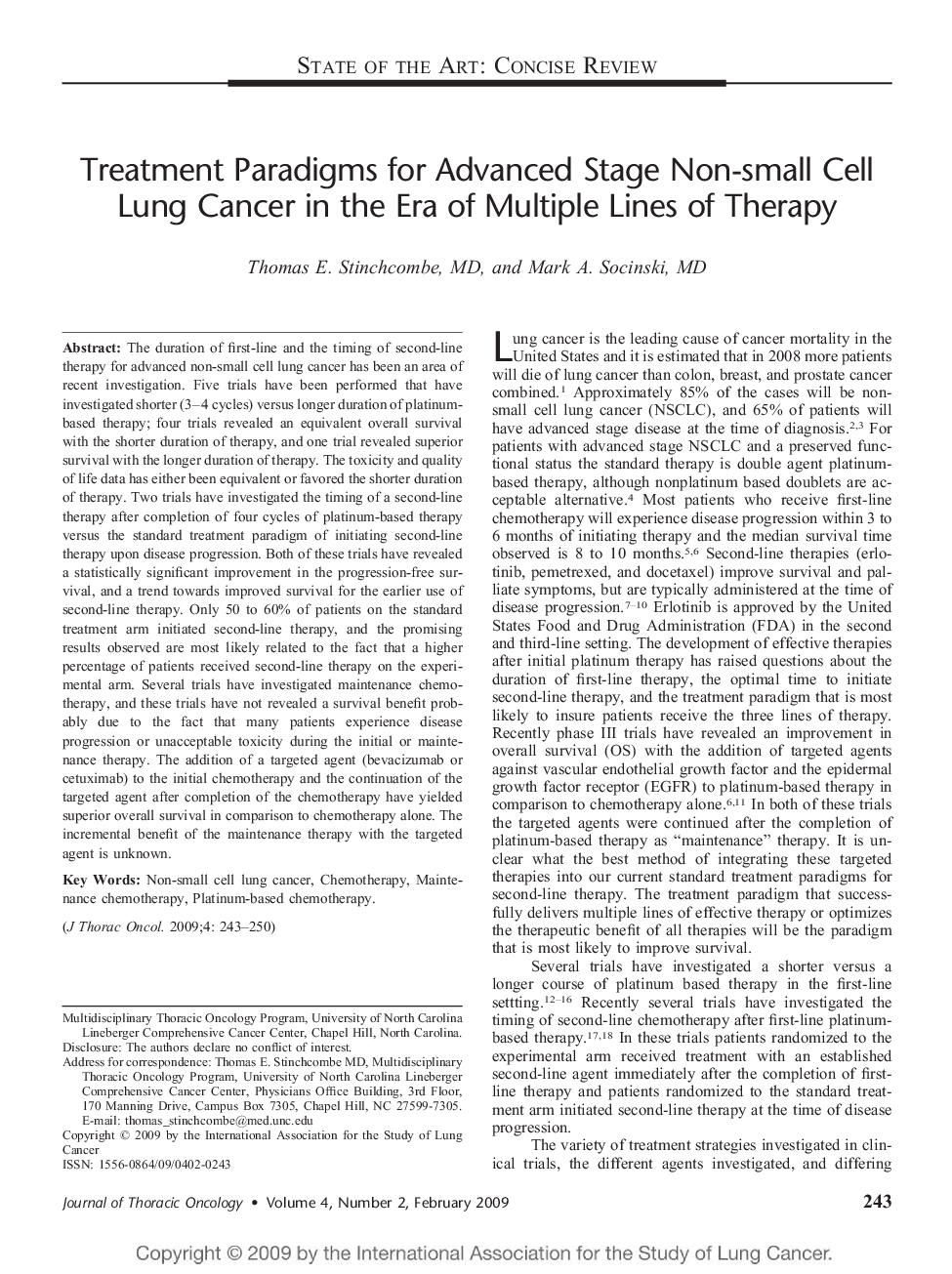| Article ID | Journal | Published Year | Pages | File Type |
|---|---|---|---|---|
| 3992380 | Journal of Thoracic Oncology | 2009 | 8 Pages |
:The duration of first-line and the timing of second-line therapy for advanced non-small cell lung cancer has been an area of recent investigation. Five trials have been performed that have investigated shorter (3–4 cycles) versus longer duration of platinum-based therapy; four trials revealed an equivalent overall survival with the shorter duration of therapy, and one trial revealed superior survival with the longer duration of therapy. The toxicity and quality of life data has either been equivalent or favored the shorter duration of therapy. Two trials have investigated the timing of a second-line therapy after completion of four cycles of platinum-based therapy versus the standard treatment paradigm of initiating second-line therapy upon disease progression. Both of these trials have revealed a statistically significant improvement in the progression-free survival, and a trend towards improved survival for the earlier use of second-line therapy. Only 50 to 60% of patients on the standard treatment arm initiated second-line therapy, and the promising results observed are most likely related to the fact that a higher percentage of patients received second-line therapy on the experimental arm. Several trials have investigated maintenance chemotherapy, and these trials have not revealed a survival benefit probably due to the fact that many patients experience disease progression or unacceptable toxicity during the initial or maintenance therapy. The addition of a targeted agent (bevacizumab or cetuximab) to the initial chemotherapy and the continuation of the targeted agent after completion of the chemotherapy have yielded superior overall survival in comparison to chemotherapy alone. The incremental benefit of the maintenance therapy with the targeted agent is unknown.
